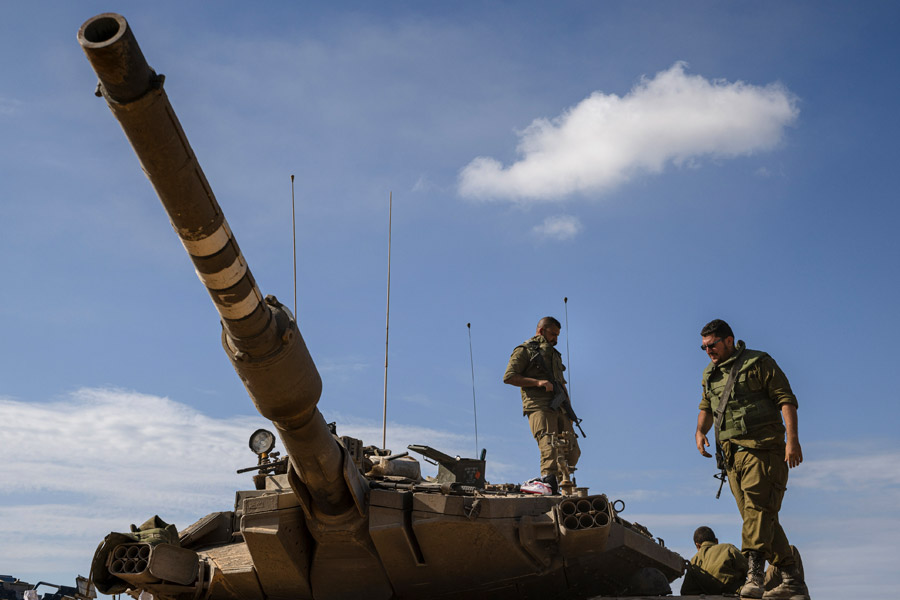For months, Israelis had heard only about hostages being killed or declared dead in Gaza. The “lucky” families were those whose loved ones’ remains were retrieved by soldiers, at great risk, and brought home to Israel for burial.
So the audacious rescue on Saturday of four living hostages instantly raised morale in Israel and offered a momentary victory, at least, for the country’s embattled Prime Minister, Benjamin Netanyahu.
But by Sunday, euphoria was already giving way to a harsh reality. The heavy air and ground assault that accompanied the rescue killed scores of Palestinians, including civilians, according to Gaza health officials. And the operation failed to resolve any of the deep dilemmas and challenges vexing the Israeli government.
Eight months into its grinding war in Gaza, Israel still appears to be far from achieving its stated objectives of dismantling Hamas’s military and governing capabilities. And Israelis fear that time is running out for many of the hostages in Gaza. About a third of the 120 that remain have already been declared dead by the Israeli authorities.
At the same time, Israel’s leadership is grappling with an escalation of hostilities across the northern border with Lebanon and battling increasing international isolation and opprobrium over the war in Gaza, including allegations of genocide that are being heard by the International Court of Justice in The Hague.
The rescue mission “doesn’t solve a single one of the problems that Israel has been facing ever since October 7,” wrote Nahum Barnea, a leading Israeli political columnist, in Sunday’s popular Yediot Ahronot newspaper.
“It doesn’t solve the problem in the north; it doesn’t solve the problem in Gaza; and it doesn’t solve the slew of other problems that threaten Israel in the international arena,” he added.
The stability of Netanyahu’s government, meanwhile, is hanging in the balance.
Pressure has been building on the government to reach a deal with Hamas for the release of all the remaining hostages. But the fate of Israel’s proposal for a truce and a hostage and prisoner swap, as outlined by President Biden more than a week ago, is still uncertain. The Biden administration and Israeli officials say they are still awaiting a formal response from Hamas to determine whether negotiations can resume.
Israelis are now debating whether the hostage rescue operation will help or hinder the prospects for such a deal — one that, should it go ahead, could threaten Netanyahu’s hold on power, with far-rightists in his ruling coalition vowing to quit and bring down his government.
The rescue of the four hostages was likely to bolster the arguments of those who say that Israeli military pressure on Hamas and continued ground operations in Gaza are necessary to bring the rest of the hostages home.
But for many Israelis and relatives of the scores of remaining hostages, the return of only four crystallised the obvious — that such complex military operations can probably only reach a few of them and come at great risk and cost, both to the military and to the civilian population in Gaza.
The military’s chief spokesman, Rear Adm. Daniel Hagari, made that clear in a briefing with reporters on Saturday, saying of the remaining hostages, “We know that we can’t do operations in order to rescue all of them because there aren’t always the conditions that allow that.” The largest number of hostages to have been freed — over a hundred — were released under an earlier deal for a temporary cease-fire.
And for Hamas — which lost four of its remaining bargaining chips on Saturday — the deadly Israeli operation could harden its position. The group hinted that the rescue operation could make things worse for the remaining captives.
“The operation will pose a great danger to the enemy’s prisoners and will have a negative impact on their conditions and lives,” the spokesman for the group’s military wing, Abu Obeida, said in a statement on Saturday.
Experts said some of the remaining hostages could now be moved from aboveground civilian apartment buildings, like those that housed the four who were rescued on Saturday, to underground tunnels where they will be harder to reach.
New York Times News Service










